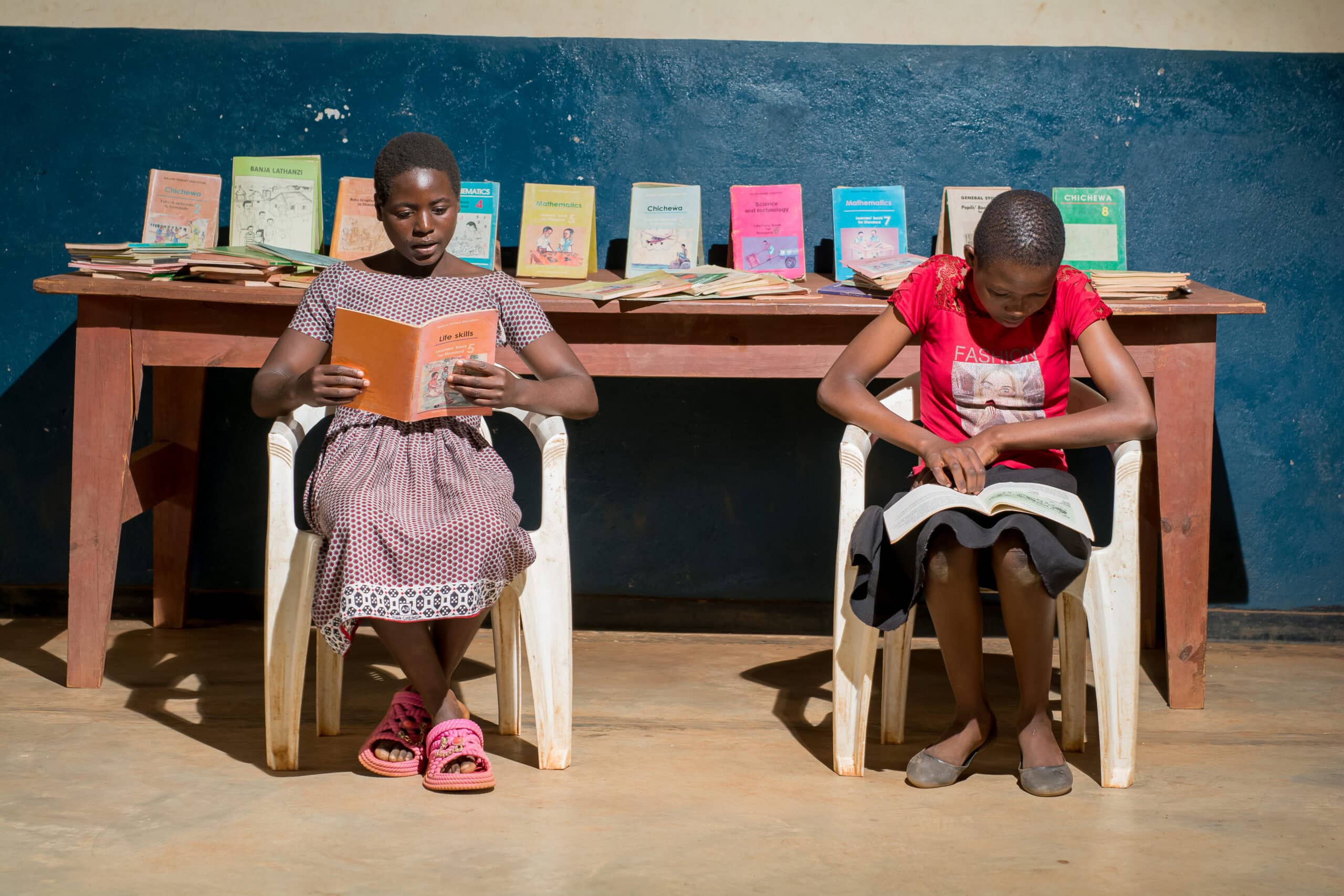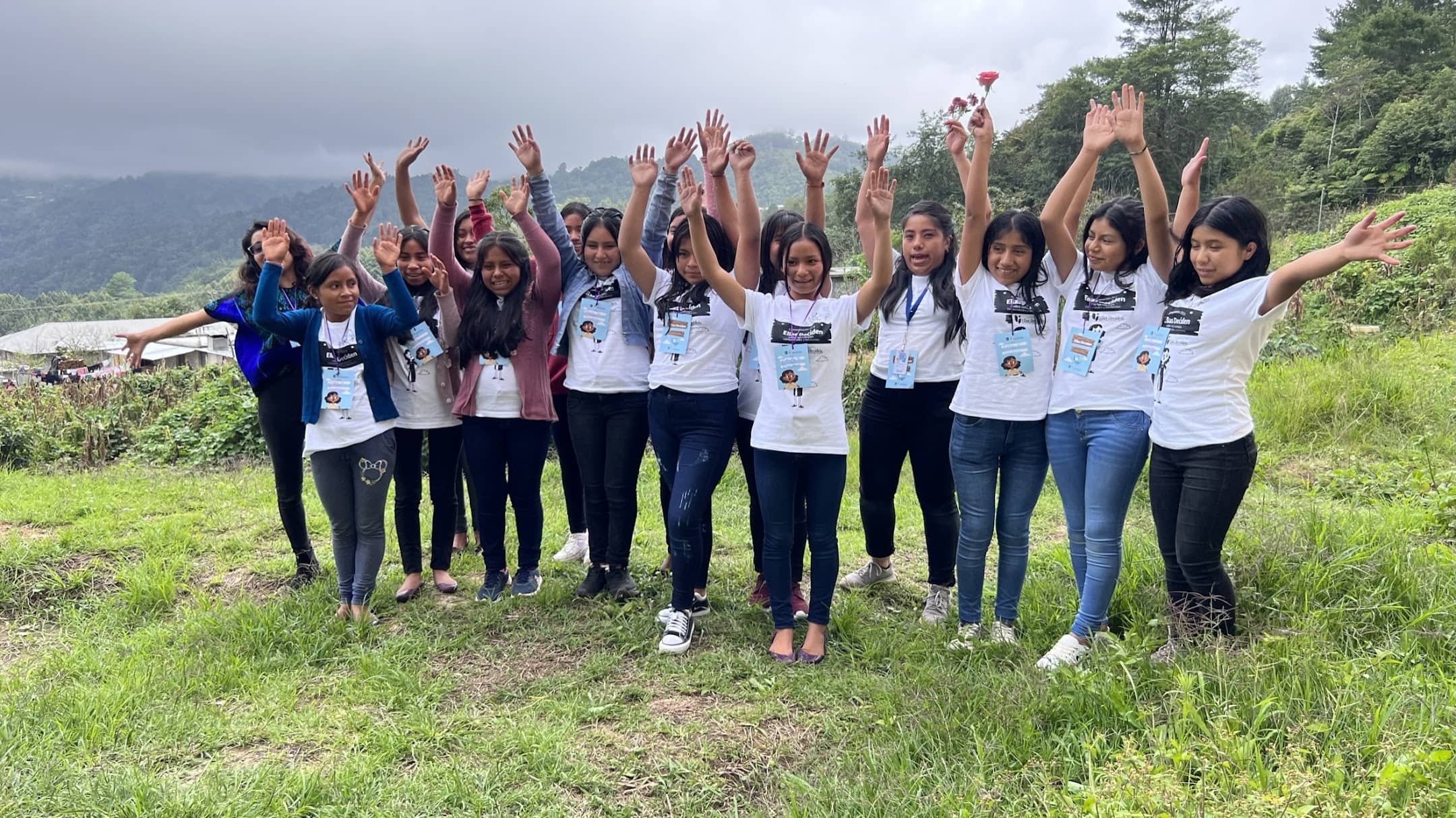This International Day of the Girl, The Hunger Project celebrates girls’ leadership as the key to ending hunger and building a just, resilient future.
Around the world, girls are stepping forward as leaders — challenging inequality, transforming their communities and proving that their voices are essential to ending hunger. This International Day of the Girl, The Hunger Project joins the global call to recognize girls not as future leaders, but as leaders today — creating a world without hunger.
Across our communities, we have witnessed that girls are often the first to experience the effects of hunger and poverty — yet they are also at the heart of the solutions. When girls have access to education, health care and leadership opportunities, the ripple effects strengthen entire communities. Our programs across Africa, South Asia and Latin America create spaces for girls to develop their voice, agency and confidence — and to lead collective action for change.
The Ripple Effect of Investing in Girls
Adolescent Girls Program
In India, The Hunger Project’s Adolescent Girls Program helps girls ages 12 to 18 build life skills and leadership abilities at a crucial time in their development. Through Sukanya Clubs, peer-led networks in rural villages, girls meet regularly to learn about financial and digital literacy, reproductive health, and civic participation. They connect with elected women representatives to understand how local government works — and how they can influence it. These efforts have led to powerful results: girls have successfully advocated for streetlights to make roads safer, reopened school libraries, and ensured menstrual health supplies reach their schools.

From Learning to Leading
In Malawi, access to electricity is transforming what’s possible for girls like Joana and Maness. After finishing household chores each evening, they walk to the local Epicenter — a safe, well-lit space to study, build skills, and envision their futures.
“If I study here every night, I know I can become a nurse and help my community,” says Joana.
“I want to become a teacher and my role model is my teacher,” adds Maness.
The girls’ learning at the Epicenter is part of The Hunger Project’s integrated training programs, which aim to equip adolescent girls with the skills and confidence to lead in their communities. This includes financial literacy, digital literacy, health and nutrition education, leadership training and civic particiaption.
Through these programs, girls are not just studying — they are actively developing leadership capacity and engaging with local governance.

Ending Child Marriage
In Bangladesh, girls are organizing youth groups and taking action to prevent child marriage and promote girls’ education. They engage local authorities to raise awareness about the law, while supporting each other to stay in school and pursue higher education. These youth-led movements demonstrate that when girls are trusted with leadership, they can shift social norms that have persisted for generations.
In a similar program in Mexico, Ellas Deciden, 90 girls in Chiapas and Oaxaca are working with our team to speak out about and stop child, early and forced marriages and unions in their communities.
Across all our program countries, we see a consistent truth: investing in girls’ leadership changes everything. Girls who are educated, supported and empowered grow into women who lead businesses, govern villages, and advocate for others. They are key to ending hunger and building resilient, self-reliant communities.
This International Day of the Girl, we honor their courage and leadership. Together, we can ensure that every girl — wherever she is born — has the power to say with confidence: “The girl I am, the change I lead.”
Benin, 2025 © The Hunger Project
The post International Day of the Girl 2025 appeared first on The Hunger Project.


